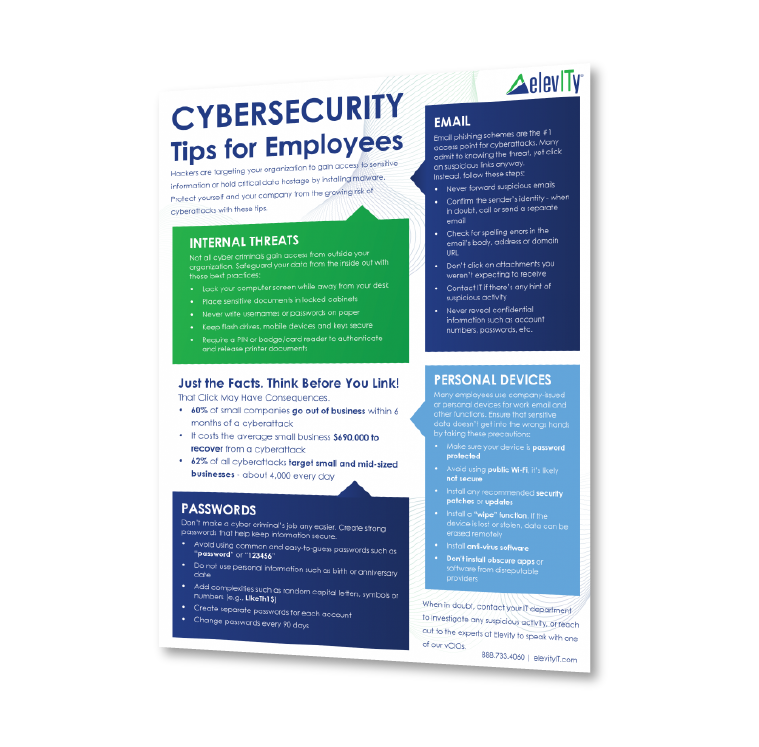When IBM Watson made its public debut more than a decade ago on Jeopardy!, viewers were stunned at its ability to quickly decipher and answer questions. Its two human competitors — Ken Jennings among them — were cleanly defeated, and the world had a glimpse into the future of cognitive technology.
Today, cognitive computing systems and cognitive analytics affect every area of our lives, from travel, sports and entertainment, to customer service, fitness, health and wellness — including the health of our pets.
Cognitive technology is also transforming businesses, whether a major enterprise or small startup. And with developments such as ChatGPT making news, the speed at which cognitive computing advances is only going to accelerate, with endless applications on the horizon.
What is Cognitive Computing?
Without necessarily realizing it, you may already be familiar with everyday examples of such intelligent technology.
- Netflix recommends movies based on your past preferences and views
- Amazon shows you products similar or related to ones you’ve already purchased
- Facebook puts content similar to what you’ve already interacted with into your newsfeed
A cognitive computing system is trained to simulate human thought processes and learn based on interactions and outcomes rather than simply presenting information like you see when entering a keyword into a search engine. It’s a cognitive system that can act almost like a human in its capacity to answer questions in a way that feels natural – and with remarkable speed and accuracy, reacting quickly and in real time.
Cognitive computing uses a massive quantity of information, including the complexities of an evolving language, and provides answers and recommendations that are supported by existing data. Adaptation is one of the primary characteristics and advantages of cognitive computing, as these technologies can learn from what they’ve already seen or done and can adapt on the fly and make changes where needed.
Cognitive technology helps businesses by sorting out what is relevant and what isn’t, and gives sound, evidence-based advice and recommendations. And the kicker? These systems will continue to learn and get better over time.
5 Cognitive Computing Product Examples
Entrepreneurs and business leaders are leveraging cognitive computing applications in a wide variety of industries. They want to improve upon technologies, products and services that are based on machine learning and artificial intelligence (AI), and their business models show some of the ways these technologies will transform our lives in the future.
Let’s dig into these five examples of prominent cognitive tech companies and systems:
1. VantagePoint AI
Primary Industry: Finance
Objective: Provide accurate, fact-based investment recommendations
Choosing a well-performing stock has traditionally been a guessing game for many investors. With the help of machine learning and artificial intelligence, investors can feel more confident in their investment decisions.
VantagePoint is considered a leader in investment trading software research and development and has been shown to forecast stocks in twelve U.S. sectors including energy, financial, healthcare and technology, as well as stocks around the world. This tool can forecast market movement up to three days in advance, enabling traders to get in and out of trades at optimal times with confidence.
2. Virgin Pulse
Primary Industry: Healthcare
Objective: Provide access to reliable, up-to-date health and benefits information
Virgin Pulse offers solutions for various sectors in the healthcare world — from employers to health insurance plans to hospitals to patients. AI-driven tools are used for keeping people up to date on their own personal health goals as well as encouraging better health habits through personalization.
The entire endeavor looks to utilize cognitive computing technology and the advanced learning and personalization possible with such modern tools to engage everyone with their health and wellbeing in a much more hands-on way.
Further Reading: The 10 Best File Sharing Softwares for 2023
3. LifeLearn
Primary Industry: Veterinary Care
Objective: Help veterinarians diagnose and treat illness in their animal patients
Cognitive technology isn’t just helping humans; it’s also helping veterinarians take better care of the pets and animals that are brought into their practices. LifeLearn offers a clinical decision-support tool for veterinarians called Sofie that leverages cognitive technologies like IBM Watson’s platform to search a vast knowledge base, including 40,000 pages of peer-reviewed, evidence-based reference materials containing the most current, credible and trusted veterinary resources.
Clinicians can use this AI-powered assistant to ask questions from any location, at any time – even out in rural areas where veterinarians service animals out on the farm.
4. SparkCognition
Primary Industry: Multiple Industries
Objective: Prevent downtime, disasters, data loss and more
SparkCognition serves multiple industries, helping to unearth insights from their customers’ data to optimize operations, predict future events, protect their assets and accelerate growth. The company features multiple platforms, products and services, which all offer flexibility to help different industries meet their goals.
One example is the oil and gas industry, which uses their AI systems to accurately predict impending failures and maximize production. SparkCognition’s predictive analytics helps operators avoid unexpected downtime, successfully identifying production-impacting events as much as nine days in advance.
Learn More: The Real Cost of Operational Downtime
5. Numenta
Primary Industry: Scientific Research
Objective: Overcome AI’s limitations and the laborious work required to get it to learn continuously
Numenta applies neuroscience principles to machine intelligence research. The scientists and engineers that make up Numenta believe a new approach to machine learning and AI is needed — one that applies neuroscience principles to make systems and AI more “brain-like.”
To do that, they’re seeking to understand the complex circuitry of the human brain’s cortex column. They’re applying their principles to create even better AI systems that feel more human-like than even the most impressive AI tech we have now.
Technology Management Evolution
These cognitive, AI-driven systems demonstrate just how far technology has evolved over the years. With that being said, Technology Management has moved right along with it. No longer are the old, sometimes reactive ways of running a help desk or setting up a network infrastructure going to cut it. There are a few different ways to approach such a service, and we’ve prepared something for you to check out.
We’ve created a handy comparison that goes over the different aspects of a traditional IT model and a more modern Technology Management approach. Just click the link below to access your free copy of our infographic, Traditional IT vs Technology Management, to learn more.





%20cropped.jpg)




